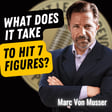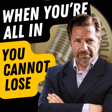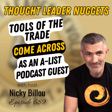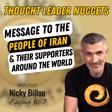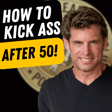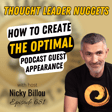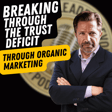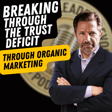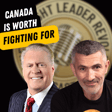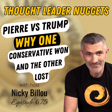
EP668: Ian Robertson - Why Canada Matters
“What I want Canada to be, and I think this is where Pierre can take us, is a country that is so full of opportunity that we need to open our doors even bigger to have the best and the brightest come in because our economy is growing.”
In a time when politics, business, and economics feel like a house of mirrors, this episode breaks down why Canada still matters—and what it will take to keep it that way. From affordability crises to bloated bureaucracy, it’s not about ideology anymore—it’s about survival. This conversation draws a sharp line between stakeholder control and individual freedom, between bureaucratic sprawl and a thriving economy rooted in opportunity.
Ian Robertson reflects on lessons from Mike Harris’ era, where clear communication, common-sense leadership, and policy courage turned third-place polls into governance victories. He outlines how Pierre Poilievre’s focus on clarity and urgency parallels that legacy, and why the fight today is not just political—it’s structural. Whether it’s reforming immigration policy or slashing government bloat, Ian argues that Canada must choose between decline or regeneration.
Ian Robertson is a seasoned political strategist and corporate advisor. A veteran of both Canadian politics and Bay Street, he’s the CEO of Jefferson Hawthorne.
Lean more & connect:
Jefferson Hawthorne – https://www.jeffersonhawthorne.com
Also in this episode:
Nicky’s recent appearance with Ezra Levant on rebel News: https://x.com/RebelNewsOnline/status/1909372778232377816
Book: Values: Building a Better World for All by Mark Carney
Visit https://www.eCircleAcademy.com and book a success call with Nicky to take your practice to the next level.

